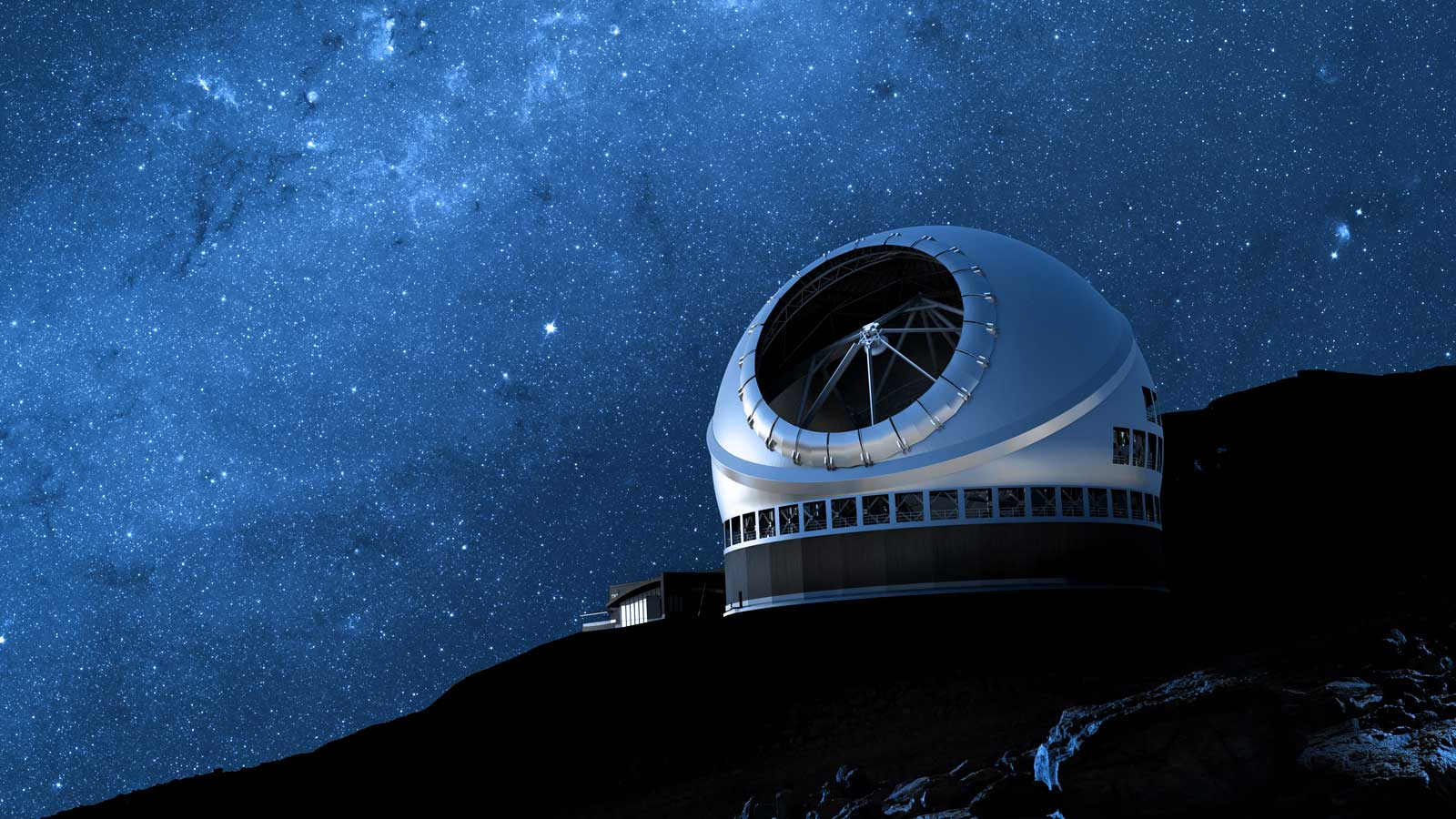
The LGSF, mounted on the telescope structure, projects powerful laser beams into the Earth’s upper atmosphere, generating artificial stars to facilitate adaptive optics correction for atmospheric turbulence.
The Laser Units (each consisting of a laser head and laser electronics) are installed on the laser platform. A long beam transfer optics enables the laser beams to be relayed to the LGSF Top End, where they are formatted and launched from a laser launch telescope.
The LGSF can project four distinct LGS asterisms for TMT first light AO system NFIRAOS and future AO systems.
The diagram showcases key components such as the LGSF Top End Support Structure, the asterism generator, the K mirror, the collimator, the Laser Launch Telescope, and the aircraft detection system.
Nearly 30 engineers and scientists attended the review in person at the Pasadena project office or remotely. The international review panel included experts from ESO, Durham University, NRC, and TIO.
The TMT LGSF Laser System configuration includes eight laser units and the Laser Cooling System mounted on the laser platform. Each of the laser units is composed of a Laser Head and a Laser Electronic cabinet.
TMT M2SSP Conceptual Design. The secondary mirror will be mounted in a steel mirror cell that contains the axial and lateral supports for the mirror.
TMT Secondary Mirror Support System and Positioner (M2SSP) Kickoff Meeting at AMOS, on 24 and 25 October 2023 held on site at M2SSP supplier AMOS offices in Belgium. The meeting participants, including representatives from TIO Optics, Systems Engineering, Structure, and Controls groups, conducted a thorough review of the M2SSP requirements with AMOS.
TMT participated in the U.S. Extremely Large Telescope Program exhibit at the 2023 NSBP (National Society of Black Physicists) annual conference in Knoxville, Tennessee on 9–12 November 2023.
TIO joined US-ELTP partners NOIRLab and the Giant Magellan Telescope to participate in SHPE. SHPE is the nation's largest association dedicated to fostering Hispanic leadership in STEM fields.
Staff from TMT International Observatory, the Giant Magellan Telescope, and NOIRLab attended the SHPE (Society of Hispanic Professional Engineers) conference that is the country’s largest annual gathering of Hispanic STEM students and professionals.
TMT partnered with NOIRLab and the Giant Magellan Telescope to participate in the U.S. Extremely Large Telescope Program exhibit at the 2023 SACNAS (Society for Advancement of Chicanos and Native Americans in Science) Conference in October 2023.